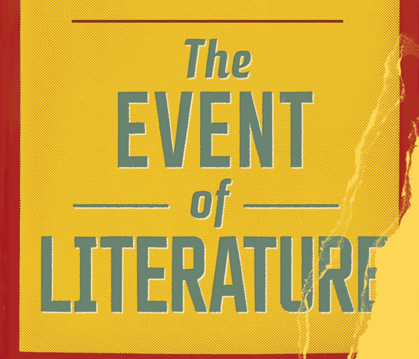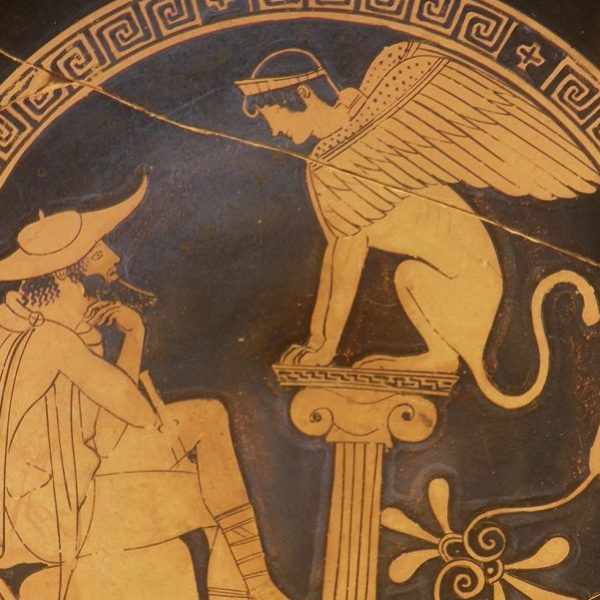Defining a Change: Literary Theory, Truth, and Fiction in the Digital Age
Terry Eagleton’s newest book The Event of Literature addresses literary theory and tackles the question—what is literature—utilizing a variety of theories. Each theory has its own historical perspective that is formed by morals, values, and events. It is this ever-changing standard used to define literature that Eagleton grapples with in his book, which comes, he purports, because “history was moving rapidly under people’s feet and they felt that certain things of value were being threatened and art or literature became depositories of value.” If literature is a depository of value how does the changing values in society influence the literary theories Eagleton studies?
 In reading his text one finds theories that classify literature on the basis of a series of characteristics, the theory of family resemblance, and the purpose a piece serves. The theory of family resemblance is the one most explored by Eagleton. First used by Ludwig Wittgenstein, the theory operates under the assumption that everything is connected through a common feature, or series of features, that causes them to resemble one another. That is to say, Jane Eyre and The Hunger Games have characteristics in common, a female heroine and unobtainable love, yet also have characteristics in common with numerous other written pieces. With a series of overlapping and intertwining characteristics these two books can resemble a large portion of written work in one form or another according to the theory. Using this theory Eagleton outlines how it is impossible, then, to form one concrete definition of literature as all written work has something in common, but they can be classified based on roughly defined characteristics of literature.
In reading his text one finds theories that classify literature on the basis of a series of characteristics, the theory of family resemblance, and the purpose a piece serves. The theory of family resemblance is the one most explored by Eagleton. First used by Ludwig Wittgenstein, the theory operates under the assumption that everything is connected through a common feature, or series of features, that causes them to resemble one another. That is to say, Jane Eyre and The Hunger Games have characteristics in common, a female heroine and unobtainable love, yet also have characteristics in common with numerous other written pieces. With a series of overlapping and intertwining characteristics these two books can resemble a large portion of written work in one form or another according to the theory. Using this theory Eagleton outlines how it is impossible, then, to form one concrete definition of literature as all written work has something in common, but they can be classified based on roughly defined characteristics of literature.
There are a variety of ways that Eagleton classifies works in an attempt to determine the popular definition of literature. He says, for instance, that “literature” is generally considered to be works of fiction, but jokes and lies are also fiction, as they twist the truth or are outright misrepresentations. Eagleton clarifies this point by drawing distinctions between understood fiction and fiction that one believes is true, further observing these lines are not clearly defined.
Where does a lie fit in to this categorization? To the liar it is known fiction, to the lied-to it is believed to be true, so whose definition of the lie is used to determine whether it is fiction? The idea of a lie is a socially constructed value, so do the values of a society change how fiction is defined? Do people who consider gossip the truth and people who consider it a lie hold a different definition of fiction? Does an age where digital content can be easily altered, but not removed, change what we know to be true?
These questions are especially important in an age where the values and morals that shape literature are spread across the digital divide. Digital culture has changed how people express their values and ideas with one another, and how they define themselves. Does the self-referential quality that Eagleton also considers to be indicative of literature change in a materialist culture? It would seem that in a culture where being self-referential is a national past time there is once again a question of what is true and what is false or put on for show? In a world with 901 million people using Facebook in an average month to connect with friends or post statuses about their lives the question becomes how many of the millions of statuses are fiction and how many are true? Has the 140 character limit on Twitter changed how much thought into determining what fact is and what is fiction? These questions face the generation of college students who have overlooked literary theory in their education, as Eagleton laments in an interview with Yale University Press. In a generation reliant on Google and Wikipedia to determine truth and fiction, Eagleton is correct, then, in saying that defining literature relies on one’s own sense. When the lines between truth and fiction become fuzzy the only sense you can rely on to define literature is your own.





I like the idea of lies coming under the umbrella of fiction. While lying is definitely not advisable in most situations, it is definitely a creative process. The liar really creates his own world in a lot of ways, the same way a fiction writer does. Depending on how elaborate the lie is, the liar can even get drawn into it himself. Anyway, interesting to see that addressed in a literary theory book.